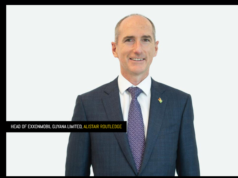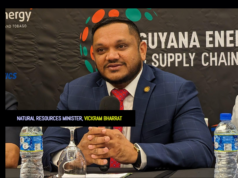The People’s National Congress Reform (PNC/R) recently underscored the need for a comprehensive study to be done to determine how citizens can derive maximum long-term benefits from their contributions to the National Insurance Scheme (NIS) as opposed to the trend of recently announced one-off payments.
At a press conference on Friday last, PNCR Executive Member Ganesh Mahipaul said while the initiative to assist citizens who fell short on their NIS contributions is commendable, the government should go beyond offering what he described as “drop in the bucket” solutions.
On Thursday, President Irfaan Ali unveiled that the $10 billion initiative will provide one-off payments to approximately 25,000 citizens based on their NIS contribution brackets. Under the initiative, those who contributed between $500 and $549 will receive $260,000, while others with higher contribution amounts will receive proportionately larger payments.
Mahipaul, however, argued that this approach does not adequately reflect the efforts or entitlements of some contributors. “Take, for example, a person with $547 in contributions, they will be getting a one-off of $260,000. I’m sure their contribution was far more than $260,000 Guyana dollars, and it’s just a one-off,” he said.
He further noted that many of the persons likely to benefit are now senior citizens, some of whom may have had discrepancies in their contribution records due to factors outside their control. He noted that these could include employers who failed to remit deducted contributions or administrative errors such as misspelled names.
Mahipaul said, “We should look at it in a more comprehensive way, to see how we could facilitate them, even if it’s at a prorated amount. And if it requires amending the laws to facilitate this for the benefit of the people, then so be it.”
The PNCR executive outlined that any policy action, particularly those involving vulnerable populations, must be guided by the principle of ensuring maximum benefit to citizens. He then suggested a study to explore more sustainable and equitable alternatives for addressing contribution gaps and enhancing retirement security.
He stated, “These sporadic, one-off, drop-in-the-bucket kind of solutions are really and truly not going to give the effect or the positivity that you want to get from it. We are thinking along the lines of having some adjustments to the law and moving in a direction of having a comprehensive study done.”











